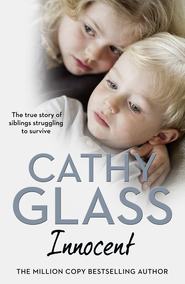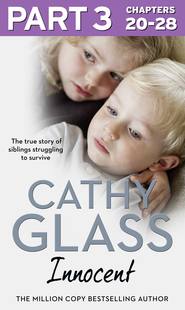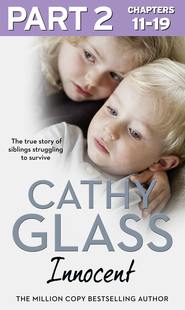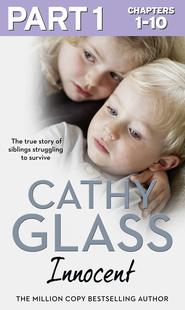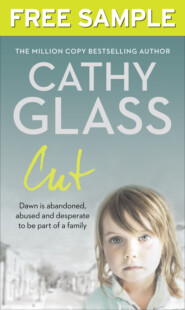По всем вопросам обращайтесь на: info@litportal.ru
(©) 2003-2024.
✖
About Writing and How to Publish
Автор
Год написания книги
2019
Настройки чтения
Размер шрифта
Высота строк
Поля
Most writers, however, want to share their work, and before you submit it to a literary agent or a publisher you will need to ensure your work is as clear of imperfections as possible. While an agent or publisher might overlook a few typing errors, he or she will not be impressed if your work is littered with irritating and basic grammatical errors, has a lack of or inappropriate use of punctuation or is poorly set out. Agents and publishers are far too busy with other writers’ work to spend time trying to decipher your illiterate text, and so what might have been a bestseller may never see the light of day. As the writer Isaac B. Singer said: ‘The waste-paper basket is the writer’s best friend.’ Or to bring this quote up to date, the delete key on your computer keyboard should be your best buddy. Like many writers, I probably throw away more words than I keep as I strive for perfection, finding a better word or phrase, restructuring a sentence, exchanging one idea for another or rewriting a paragraph, page, chapter or even the whole book.
Revising and rewriting are just as important as that first creative draft. While rewriting is hard work, it is also marvellously satisfying as you hone and polish your work to as near perfection as you can make it. Time spent on revising your work can make the difference between it being accepted for publication or rejected. You can revise and edit on your computer or on a paper copy. I do both, as I find some errors and omissions easier to spot with print on paper than on screen. I revise a book at least six times before I send it to my agent. When I write an article – where the length of the piece is preset and words are therefore at a premium – I often revise it a dozen times or more. I also read the article out loud, as hearing it gives a new and more objective viewpoint. I ask myself: have I said everything I need to say clearly and concisely? Are any words superfluous and can they therefore be removed? Does the article flow easily from one point to the next? As Nathaniel Hawthorne, the nineteenth-century American novelist and short story writer, said: ‘Easy reading is damn hard writing.’
A revised page from this book
In addition to checking your spelling, grammar, punctuation and layout (more on that later), ask yourself: does your story flow, and will others reading your work for the first time understand it? Have you given sufficient background information or far too much? I agree with Elmore Leonard, novelist and screenwriter, who said: ‘Leave out the parts that people skip.’ It’s very difficult to be objective about your own work; having invested so much time in it, you’re too involved. So if you have a family member or a close friend whose opinion you value, I suggest you ask them to read your work before you submit it to an agent or publisher. A fresh perspective is often invaluable for spotting inconsistencies or omissions, as well as seeing silly spelling and grammar mistakes that you have missed. I’m not suggesting you change your story purely as a result of your reader’s comments; only that you listen to what they say and give their opinions serious consideration. Don’t take their criticism personally; it is not you they are criticizing, but your work. So often we are overprotective of our writing – seeing it as an extension of ourselves, as our ‘baby’ – and thereby we miss out on an opportunity to improve it.
(#ubc9fcbfb-bbbc-577b-a757-120075a347df)
I am not going to spend time writing a tome about spelling, punctuation and grammar. This book is not big enough for that and there are thousands of very good books on the subject already, as well as websites that give online advice and tutorials. In the UK, teaching grammar in schools went out of vogue for a whole generation as it was felt it stifled creativity. But, as with many trends in education, attitudes have come full circle and grammar is now being taught in schools again.
Don’t worry if you missed out; you don’t need to know that you are writing in prose, as long as you are, or that an independent clause must contain a subject and predicate, as long as it does. If you read extensively you will absorb good grammar and sentence structure through example. But if you feel your written English isn’t up to the task of writing your story and you seriously want to write, then you will need to set about improving your core skills, as you would before undertaking any new task. All colleges of further education offer day and evening classes in English language, as do distance-learning courses (for example, the Open University). You don’t have to wait until you’ve finished the course to begin writing; you can hone your skills while you are writing your story.
Reading
I can’t emphasize enough the importance of reading, especially the genre in which you wish to write. Not only will reading improve your sentence structure, vocabulary, spelling and language skills, it will also show you what makes a good book – its structure, layout and pacing. If you find a word you don’t know the meaning of while you’re reading then look it up in a dictionary or online. I also suggest you make a note of any interesting or unusual words or phrases you come across to improve the richness of your vocabulary. I love words, so I have a small notepad in which I make a note of any new words or phrases I come across that appeal to me. I’ve had the same notebook for over twenty-five years and some of the early jottings include: ‘diversely opposed’, ‘pragmatism’, ‘a sense of entitlement’ and ‘youthful remembrance’. I may use a variation of these one day, so I keep my little book as an aide-mémoire. Now there’s a neat phrase. If you don’t know the meaning of aide-mémoire then look it up.
Spellchecker
Now a word about computer ‘spellcheckers’. Most computer software includes spelling and grammar checkers. Use them, but with caution. While they are usually good for picking up basic errors (silly spelling mistakes, typing errors, extra spaces, omissions of capital letters, etc.), they are far from foolproof and often make errors of judgement far worse than your own. Here are some examples taken from the first fifty pages of my book Damaged:
‘One of the couples were first-time carers and Jodie should never have been placed with them.’ The spellchecker, not recognizing that in this context the verb needs to be in the plural, not the singular, highlighted were as being incorrect and suggested was as the replacement.
‘Look who’s come to see you, Jodie!’ The spellchecker suggested whose, which is an entirely different word. Who’s is the shortened form of who is or who has, while whose is the possessive form of who.
‘The sound of Jodie talking to herself floated down …’ The spellchecker wanted to use her instead of the reflexive pronoun herself.
‘She dropped to her knees and started thumping her face and head viciously.’ The spellchecker wanted to replace face with the plural faces.
Here are some further examples from my book Another Forgotten Child:
‘I was grateful my children were so understanding …’ The spellchecker, unable to recognize the past continuous verb tense, wanted to replace so understanding with understood.
‘“Come on, dry yourself,” I encouraged.’ The spellchecker, unable to see that yourself was being used as a reflexive pronoun, wanted to replace it with you.
You don’t have to know the grammatical terms, just that what you have written sounds grammatically correct while the spellchecker’s suggestion sounds wrong. English is a very rich language and one of the upshots of this is that the same word or phrase can be used differently or have a nuanced meaning depending on its context. Computers are clever, but not so clever (yet) as to be able to recognize these subtle variations in language, so it highlights your word or phrase as being incorrect and then suggests an alternative based on a literal interpretation. If you have doubts about the accuracy of your spellchecker’s suggestion then err on the side of caution and don’t accept a suggested replacement until you have checked your word or phrase on one of the many English grammar websites or in a grammar book.
(#ubc9fcbfb-bbbc-577b-a757-120075a347df)
Just as you will need to develop a reasonably good standard of English to be able to write your book, so you will also need to be computer literate, unless you are going to ask someone else to type up your work or pay an agency to do it, which is going to be expensive – probably more expensive than buying a personal computer. Although touch typing is a useful skill to have, as it allows you to type quickly, it isn’t essential, and many authors and business people get by with two-finger typing. I taught myself to touch type and I average about eighty words a minute, which is very useful for replying to the many emails I receive, as well as for writing my books. However, as long as your computer and typing skills are sufficient to allow you to produce a word-processing document (in a program such as Microsoft Word) and send it electronically, you don’t have to be a computer geek. Colleges of further education offer day and evening classes in typing and computer skills – for every stage, from absolute beginner to advanced programming. There are also private tutors who will teach you computer skills in your own home, although they don’t come cheap. Likewise, the company that sold you your computer may also offer a service whereby they set it up in your home, connect you to the internet and show you the basics.
I suggest you buy a printer to go with your computer. They are relatively inexpensive and as well as giving you the chance to see your work in print – which can give you a new perspective, as the printed word looks different from the screen version – most printers are also scanners and photocopiers.
(#ubc9fcbfb-bbbc-577b-a757-120075a347df)
The layout of your work is very important when you submit it to a literary agent or publisher, so you will need to follow their guidelines. These can be found on their website or in their entry in writers’ handbooks such as the Writers’ and Artists’ Yearbook. However, while your work is under composition, you can use whatever layout or font suits you. I use the font Arial, in size 12, which is also a standard format for submission. To adjust the font and font size go to the drop-down menu on your toolbar in your word-processing document. The number refers to the size of the characters – the higher the number, the larger the font size. I always work in double-spaced lines, which allows me room to annotate my work on the printed sheet and write in changes. Most agents and publishers will require you to submit your work in double-spaced lines too, even though you will be sending it electronically – by email. Line spacing can also be changed in the drop-down menu on the toolbar in your word-processing document.
Use black print type (it will already be set as the default), not any other colour, and not bold, and remember to paginate your work (that is, insert page numbers). Pagination isn’t usually a default setting on word-processing programs, so you will need to select it from the drop-down menu on your toolbar. Generally, the width of the left- and right-hand margins, as well as the depth of the headers and footers (the spaces at the top and bottom of the page), are preset and standard on your word-processing software, so you don’t have to worry about them. The top and bottom spaces on a page are usually 1 inch and the side margins are 1¼ inches, which are acceptable to agents and publishers. Don’t align the right-hand margin (which is also known as justifying the margin) as it will create false spaces between the words. The left-hand margin is justified by default, but leave the right-hand one ‘ragged’; that is, free.
Sentences, paragraphs and chapters need to be kept to similar lengths for ease of reading. You probably won’t have noticed this uniformity while you have been reading books, and that in itself is a good sign – it makes for a smooth and fluent read. There is obviously flexibility in the length of sentences, paragraphs and chapters, and while some genres (Mills & Boon romances and Quick Reads, for example) have more defined requirements, generally it is not a good idea to leap from a chapter of 5,000 words to a chapter of 15,000 words as the pacing will falter and may even be lost. If, while you are reading, you find yourself looking for the next chapter break then the chapter is very likely too long. You should find yourself suddenly at the end of a chapter, eager to turn the page for the start of the next and wanting to read on.
Likewise if you have to read a sentence a second or third time to make sense of it then the likelihood is that the sentence is too long – possibly with too many clauses – or it may have failed grammatically. A paragraph should contain only one main idea and the sentences within that paragraph should expand, develop and explain that idea. Take a look at a book you have recently enjoyed and you consider a good read, and then spend some time analysing its sentence, paragraph and chapter structure. I think you will see what I mean.
The first line of each new paragraph should be indented by one tab space (which will be preset on your word-processing package), and a reminder: a sentence starts with a capital letter and ends with a full stop. Do not use commas instead of full stops; they are different. Leave one character space between the end of a sentence and the start of the next. Chapter headings should be in bold, with a double-spaced line beneath, and before the start of the first sentence. Include a title page at the start of your work; an example of this is here (#ude5e4aa6-d0e8-510a-86be-f539ab06cf7c).
(#ubc9fcbfb-bbbc-577b-a757-120075a347df)
There are agencies that will edit, revise and proofread your work, either online or by working on a paper copy sent through the post. Their pricing structures vary, but they usually charge per hundred words, so if you have a full-length book of 80,000 words or more it can be very expensive. If you are considering using an editing agency, it may be worth sending a sample chapter to begin with. It will be much cheaper than having the whole book edited, and while the agency won’t be able to comment on your plot development and characterization, they will be able to offer you advice on your style and general language skills. But be wary of any agency that claims or implies in its advertising that they have connections with publishers and that you will therefore stand a much better chance of being published if you use their services. They may have connections, but ultimately whether your work is published or not will depend on the appeal and standard of your work, rather than ‘connections’.
(#ubc9fcbfb-bbbc-577b-a757-120075a347df)
Many organizations offer creative writing courses, which you can attend in person or through distance learning: local colleges of further education, universities, private colleges and agencies and personal tutors. You will also, of course, find many online. If you attend a course in person, you will have the advantage of meeting your tutor and other budding writers regularly, which can be very morale-boosting. If you opt for an online or distance-learning course, be selective. There are many to choose from, and standards as well as what they offer can vary a great deal. Good online and distance-learning courses will assign you a tutor who will set you assignments and give you constructive feedback, and whom you can email and speak to on the phone, and possibly meet in person. Some well-established distance-learning courses – for example, the Open University – also give you the opportunity to attend a residential summer school, while The Arvon Foundation offers regular residential writing courses at beautiful locations around the country, where you are tutored in small groups by a published writer in your chosen genre.
(#ubc9fcbfb-bbbc-577b-a757-120075a347df)
Most towns have at least one local writing group. They usually meet weekly in an informal setting, such as a room over a pub, a corner of a café or a member’s home. These groups are not usually tutor-led as writing courses are, but consist mainly of fledgling writers such as yourself, and offer the opportunity for members to read their work and receive feedback from the other members. Those attending are often unpublished authors, or have a little experience of being published or (increasingly) are self-published, which is worth remembering when you are considering their opinions on your work. Writing groups vary in their success. Some are well established and chaired effectively, and their members offer constructive criticism on work presented to the group, while others can be quite destructive, with opinions being egotistical and even vicious. If you feel uncomfortable in a group, or that the criticism offered on your work isn’t helpful, then leave the group and find another one. There are plenty. Writing groups advertise on the internet, on notice boards in local libraries, colleges and community centres, and in local magazines and newspapers.
Online writing communities
These are website-based and offer members the chance to post and share their work with other members online. There are many of these groups – thousands – large and small, with some more established and sophisticated than others. A few are hosted by publishing companies who also run writing competitions and will consider the work of some of the members. These chosen few are usually selected by other members through a voting system of positive reviews of the piece of work posted. Some of those selected are also published.
Writing can be a very lonely experience, especially when you first start, and these online writing communities can be morale-boosting and supportive, as well as offering feedback on your work. As with any writing group, you should give your opinions on other members’ works kindly, politely and considerately, and receive their opinions on your work dispassionately, professionally and objectively. Because of the anonymity the internet allows, reviews online can sometimes become very personal and even vindictive. As with a local writing group, if you feel uncomfortable about the way you are treated in one of these online writing communities, or that the criticism posted about your work isn’t helpful, then leave by closing your account, and go elsewhere. Writing and sharing your work should be fun.
(#ubc9fcbfb-bbbc-577b-a757-120075a347df)
When I receive an email asking for my advice on writing, the sender usually has a clear idea of what he or she wants to write and is looking for advice on how to begin, or is asking for some feedback on something they’ve already written, or wants advice on how to publish their work. However, some who email say they want to write but don’t know what to write. If you are a budding author with the burning desire to write, but are not sure what to write, then I suggest you start with something small – for example, an article, poem, short story or diary entry – rather than a full-length book. Writing something relatively short means that you are likely to complete the piece in a reasonable length of time and will gain confidence from watching your work take shape and reach fruition. This book is not long enough to explain in detail how to write in all the different genres, so I will give you a taste of each, hopefully with enough information to whet your appetite and make you want to find out more.
(#ubc9fcbfb-bbbc-577b-a757-120075a347df)
I began my writing career by writing short articles, first for the school magazine, and then freelance for local newspapers and national magazines. At that time there were only paper publications (there was no internet), but now, in addition to paper publications, there are thousands of interest-led websites and online magazines, which offer a wealth of opportunity to publish articles. Article writing can be very satisfying. I still write articles now. It allows you to write on a subject you feel passionate about, or learn about a topic you previously knew little of from researching it for your article. Editors of printed publications usually pay for the articles they publish, online publications not so much, but for a fledgling author, to see his or her work published is often reward in itself. I say more about how to publish articles in section three of this book, so now let us look at how to write an article.
You have chosen the subject matter of your article, done your research and have all the material you need to hand, including any photographs or artwork, so you are ready to begin. Bear in mind your target audience – for example, are you writing for teenagers, gardeners, builders or parents? Knowing your audience is crucial, as the content of your article, its tone and style will vary to suit your intended reader. Writing for teenagers, for example, is clearly very different in subject matter and style to writing for parents, financiers or trainspotters.
Choose a snappy, attention-grabbing heading to start your article. If you are not sure of the length or are short of ideas, look at some of the articles in the publications you are going to write for. Under your main heading write your opening paragraph. This will be a brief summary – an overview – of your article. Here is an example:
Вы ознакомились с фрагментом книги.
Приобретайте полный текст книги у нашего партнера:
Приобретайте полный текст книги у нашего партнера:
Другие электронные книги автора Cathy Glass
Innocent




 0
0






